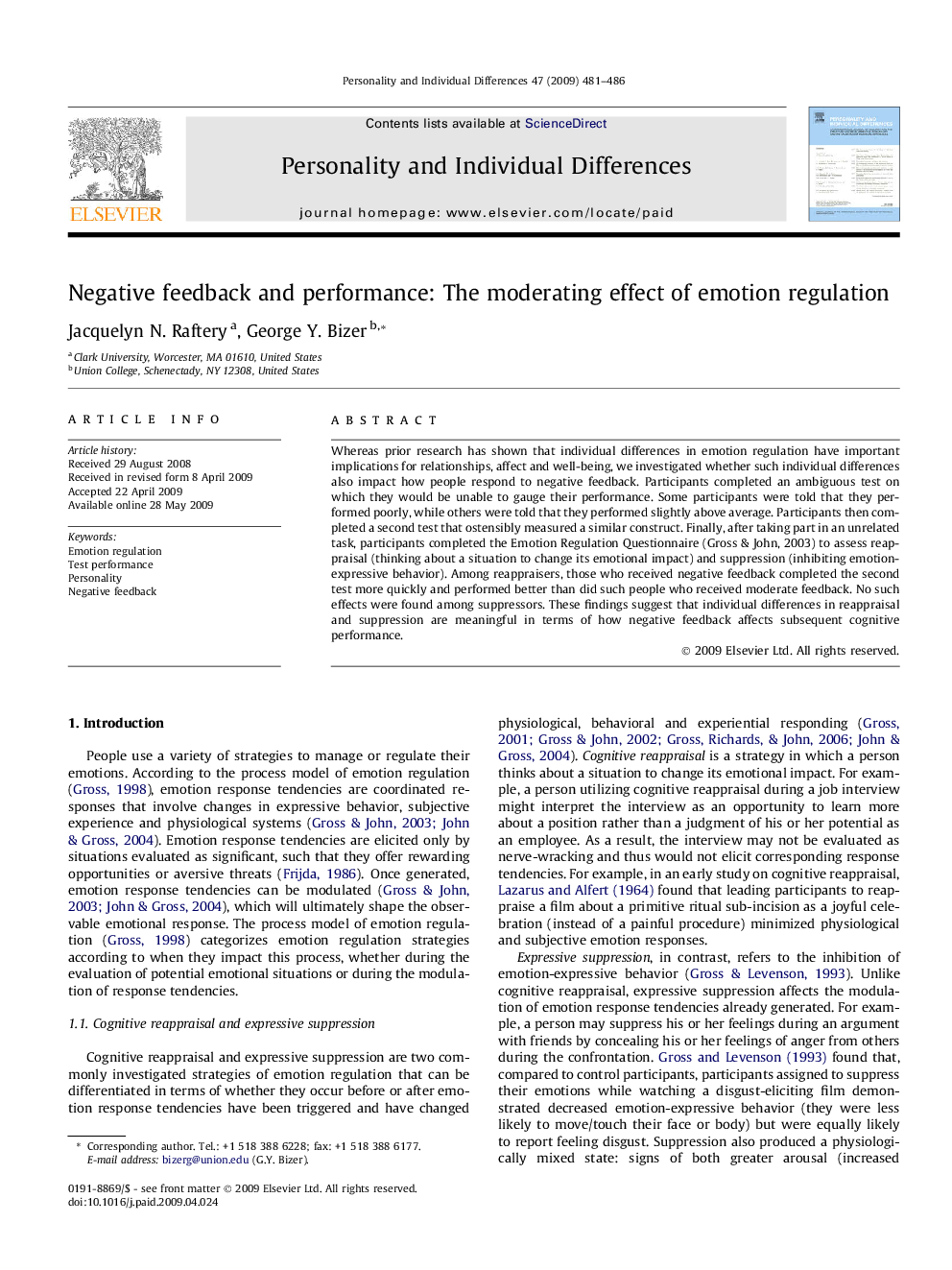| Article ID | Journal | Published Year | Pages | File Type |
|---|---|---|---|---|
| 892078 | Personality and Individual Differences | 2009 | 6 Pages |
Whereas prior research has shown that individual differences in emotion regulation have important implications for relationships, affect and well-being, we investigated whether such individual differences also impact how people respond to negative feedback. Participants completed an ambiguous test on which they would be unable to gauge their performance. Some participants were told that they performed poorly, while others were told that they performed slightly above average. Participants then completed a second test that ostensibly measured a similar construct. Finally, after taking part in an unrelated task, participants completed the Emotion Regulation Questionnaire (Gross & John, 2003) to assess reappraisal (thinking about a situation to change its emotional impact) and suppression (inhibiting emotion-expressive behavior). Among reappraisers, those who received negative feedback completed the second test more quickly and performed better than did such people who received moderate feedback. No such effects were found among suppressors. These findings suggest that individual differences in reappraisal and suppression are meaningful in terms of how negative feedback affects subsequent cognitive performance.
